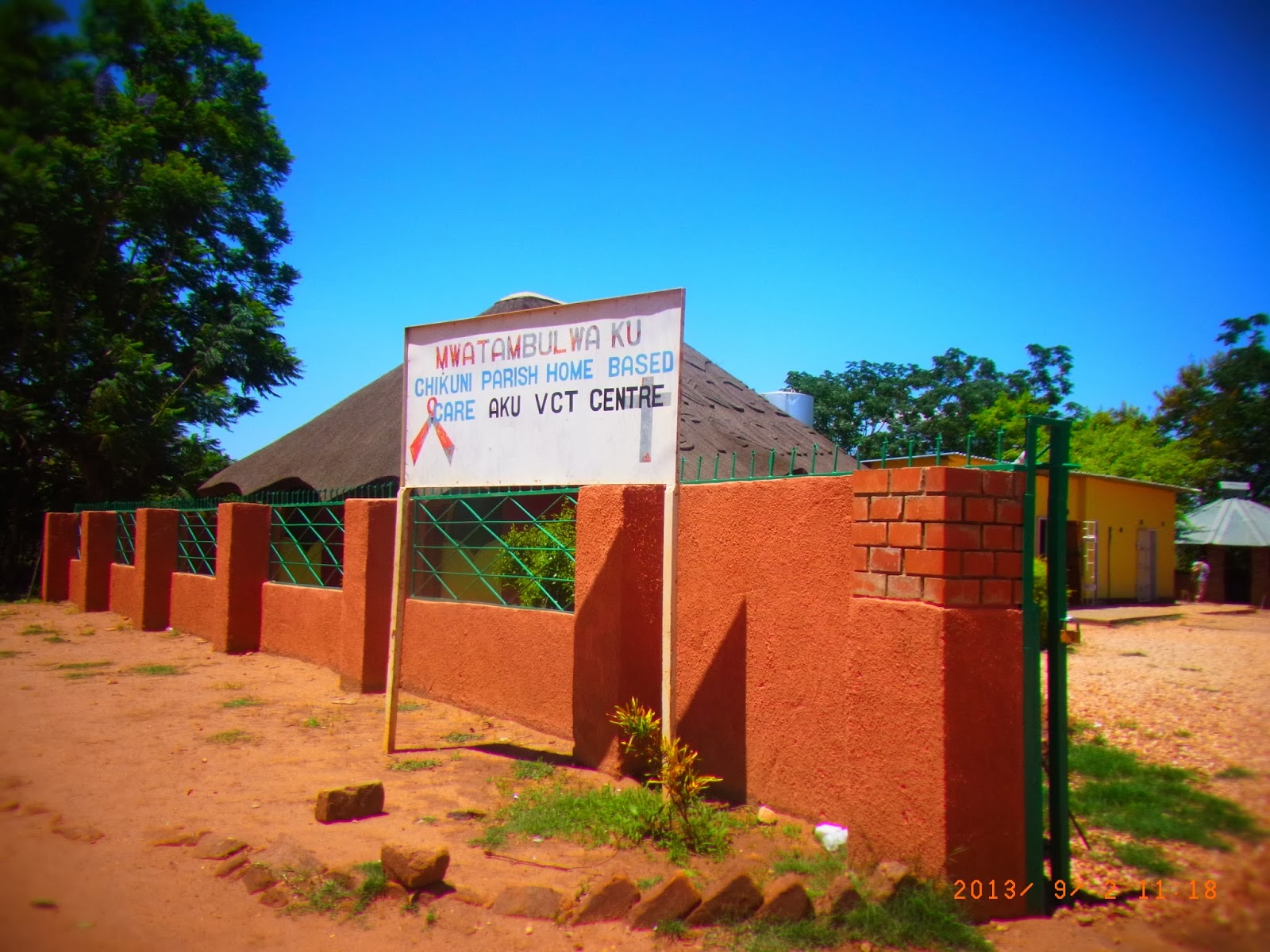 By Doreen Nawa
By Doreen Nawa
May 31, this year was time to roll out the red
carpet for Chikuni Home Based Care because the organization had scooped the
Jesuit Conference of Africa Madagascar (JESAM) Award in the category of best
performance of home-based care.
And a visit to Chikuni makes one understand why
Chikuni Parish HBC had to scoop the award unanimously.
Located in Southern Province and about a three hour drive
south of the capital city of Lusaka in Monze town, Chikuni HBC started in 2000
in order to provide holistic care for people living with HIV and AIDS (PLWHA).
The Chikuni HBC is the brain child of the Chikuni
Parish which falls in an area covering about 10,000 square kilometers.
The parish consists of approximately 25,000 people,
most of whom are subsistence farmers living in isolated rural communities.
With only 18 people at inception, the HBC serves
over 1,057 PLWHA today.
One of the beneficiaries, Gregory Hanzele says his
health and welfare and that of his family have improved from the time he joined
the home based care.
Mr Hanzele, who is living positive, says he would
have died, from suicide had the care supporters from Chikuni not intervened.
Mr Hanzele is
Chikuni Parish HBC and says the HBC began as an outreach program for Chikuni
Mission Hospital.
Initially, the mission hospital could only offer
interventions for seriously ill patients as compared to long term basic care
for the PLWHA, leaving them in serious health conditions.
“At the time,
many HBC clients were bedridden and the hospital simply did not have enough
space or personnel to care for us. Thus, HBC began training local volunteers in
the communities called “caregivers” in basic nursing skills,” Mr Hanzele said.
Mr Hanzele recalls that after being trained, caregivers,
would visit between 4 to 8 clients, every week to offer support like washing
the patients, cooking, fetching water, listening to their concerns, and praying
with them.
“Before Chikuni Parish HBC was introduced here,
PLWHA were all bedridden and we used to visit such every week but now the story
is different, we are all up and about adding value to our lives and that of our
families,” Mr Hanzele said.
Chikuni HBC caters for 27 communities and a nurse visited
once per month to give a health and spiritual talk, check clients’ weight and
blood pressure, dispense drugs to treat opportunistic infections, and offer
emotional counseling.
It also offers VCT through a mobile clinic.
Chikuni HBC coordinator Father Kelly Michelo said,
“The clinic draws people by bringing drama and video shows, playing music by
local bands about the issues (HIV/AIDS), conducting quizzes in schools, and
giving raffle prizes to raise awareness about the disease. By decentralizing
testing, more people have been reached.”
Part of the challenge, however, is that because of
the benefits that people have seen in belonging to the HBC, even those that are
not positive want to join.
With time, clients have become healthier.
As such, Chikuni HBC began opening income generating
activities (IGAs) at the main office in Chikuni Mission.
 |
|
Charity Chiswida explains how a solar dryer works.
|
Today HBC has a tailoring lab, bakery, shop, garden,
solar dryers, restaurant, and chicken run. Profits from the IGAs are divided
between HBC and the workers, who are either HBC clients or caregivers.
About 20 people are currently employed in the IGAs.
In light of diminis
hed HIV and AIDS funding globally,
the Chikuni HBC is fighting against the ‘missionary mentality’, where clients
would just wait for handouts.”
“For over 100 years, the Jesuit missionaries had given
handouts to the communities and this is the mentality that some people still
have. When HBC clients were bedridden, we gave them rice, cooking oil, sugar,
and other staple foods through the World Food Program. Now, when we asked them
(clients) to work for themselves, some of them lost interest in HBC projects,”
Fr Michelo said.
One of the beneficiaries to the IGAs Florence
Habwezu says with the help of an Italian NGO, Chikuni HBC gave her goats that
were to be raised, bred, and passed on to other community members.
“After losing my husband in 2000, I got so sick to a
point of being bedridden and when I visited the hospital, I was advised to go
for VCT and when I did that, I discovered I was positive too and I decided to
join Chikuni HBC,” Ms Habwezu said.
Ms Habwezu says had it not been for the Chikuni HBC,
she would have died by now because she had no income to start up any business.
A few years later, as a solution to the culture of
dependency and make people initiate sustainable livelihoods, HBC began
self-help groups (SHGs).
The 330 SHG members in 22 groups meet weekly or
biweekly to save and lend, and discuss personal issues.
The SHG concept strives to unleash members’ human
potential by empowering the individual to believe that “I have the capability
to improve my situation.” The program emphasises the value of self-reliance in
order to decrease the dependency syndrome within the parish and increase
families’ livelihoods.
In many parts of the country, community home-based
care has played a critical role in mitigating the impact of HIV and AIDS, as
evidenced from Chikuni Parish HBC.
In light of diminished HIV and AIDS funding globally
and increased reliance on HBC throughout Africa including Zambia, HBC’s are essential
to improving patients’ quality of life, attending to their needs and achieving
healthier populations.

